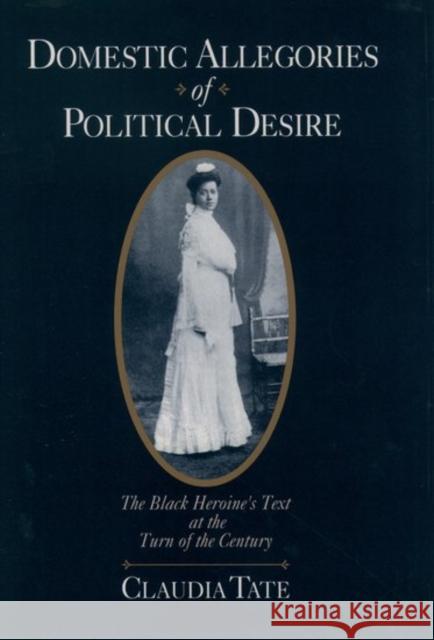Domestic Allegories of Political Desire: The Black Heroine's Text at the Turn of the Century » książka
Domestic Allegories of Political Desire: The Black Heroine's Text at the Turn of the Century
ISBN-13: 9780195073898 / Angielski / Twarda / 1993 / 312 str.
Domestic Allegories of Political Desire: The Black Heroine's Text at the Turn of the Century
ISBN-13: 9780195073898 / Angielski / Twarda / 1993 / 312 str.
(netto: 510,07 VAT: 5%)
Najniższa cena z 30 dni: 519,32 zł
ok. 30 dni roboczych.
Darmowa dostawa!
Why did African-American women novelists use idealized stories of bourgeois courtship and marriage to mount arguments on social reform during the last decade of the nineteenth century, during a time when resurgent racism conditioned the lives of all black Americans? Such stories now seem like apolitical fantasies to contemporary readers. This is the question at the center of Tate's examination of the novels of Pauline Hopkins, Emma Kelley, Amelia Johnson, Katherine Tillman, and Frances Harper. Domestic Allegories of Political Desire is more than a literary study; it is also a social and intellectual history--a cultural critique of a period that historian Rayford W. Logan called "the Dark Ages of recent American history." Against a rich contextual framework, extending from abolitionist protest to the Black Aesthetic, Tate argues that the idealized marriage plot in these novels does not merely depict the heroine's happiness and economic prosperity. More importantly, that plot encodes a resonant cultural narrative--a domestic allegory--about the political ambitions of an emancipated people. Once this domestic allegory of political desire is unmasked in these novels, it can be seen as a significant discourse of the post-Reconstruction era for representing African-Americans' collective dreams about freedom and for reconstructing those contested dreams into consummations of civil liberty.











